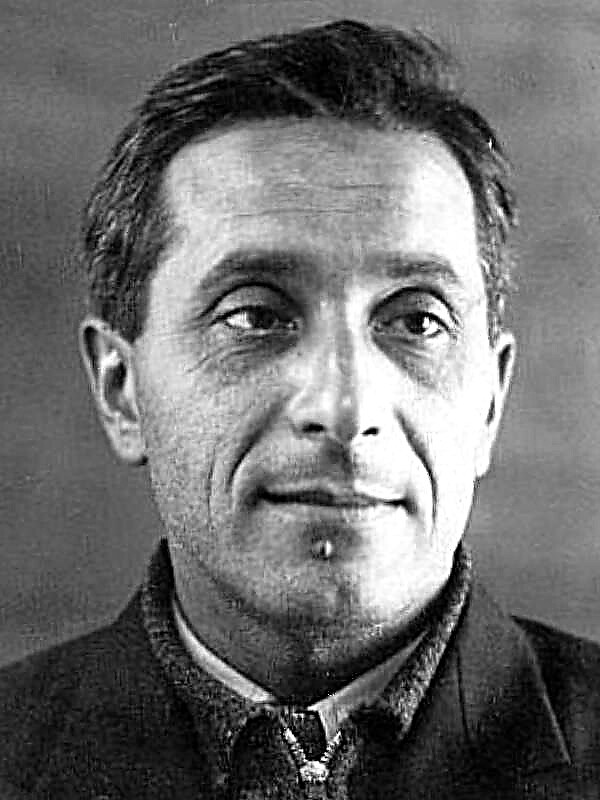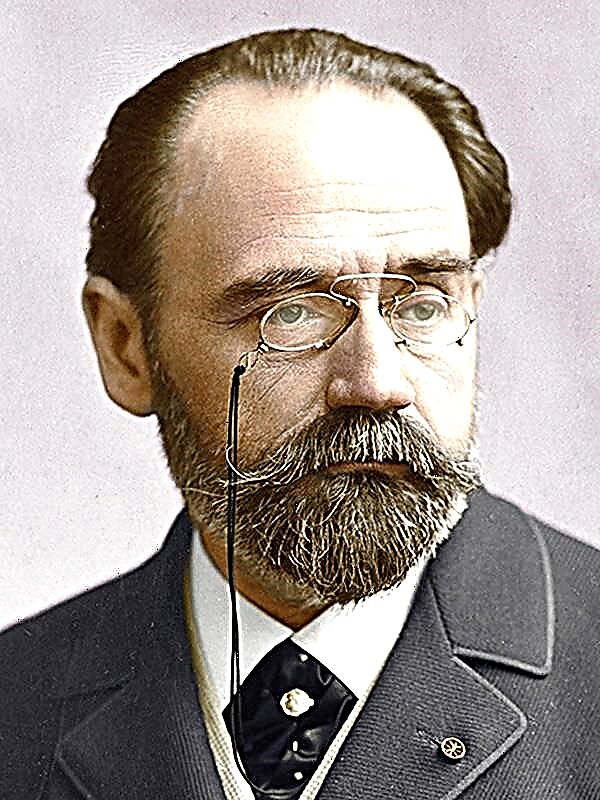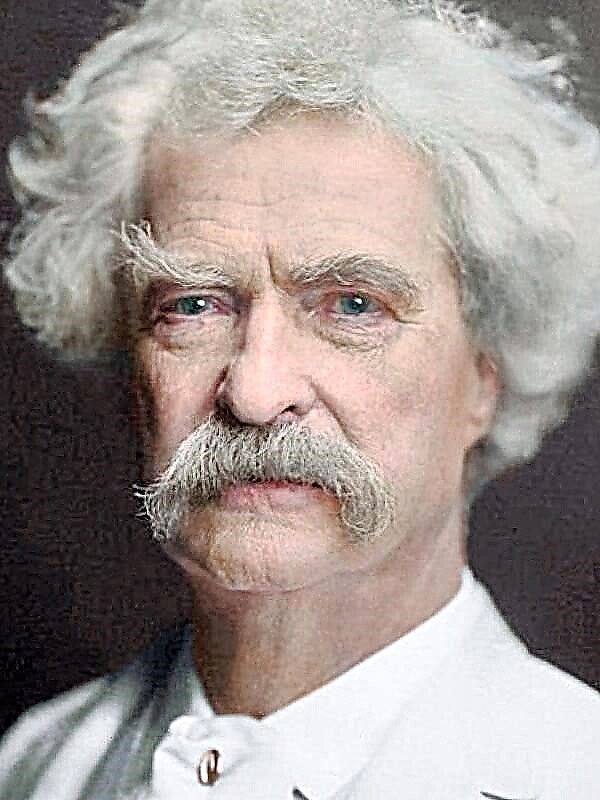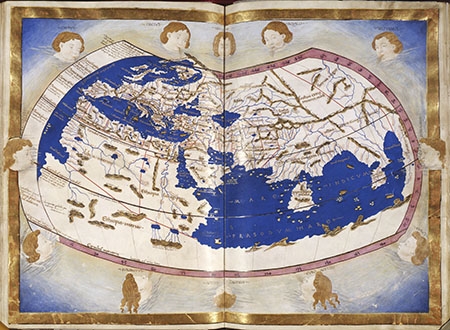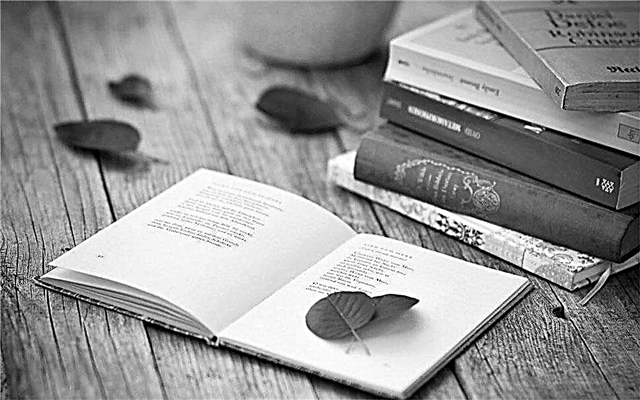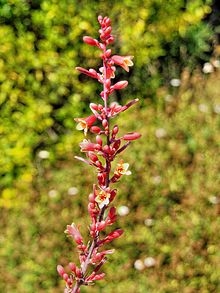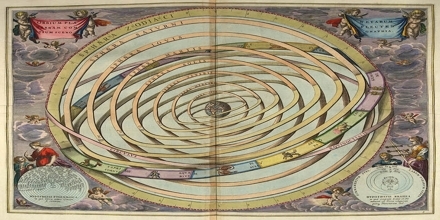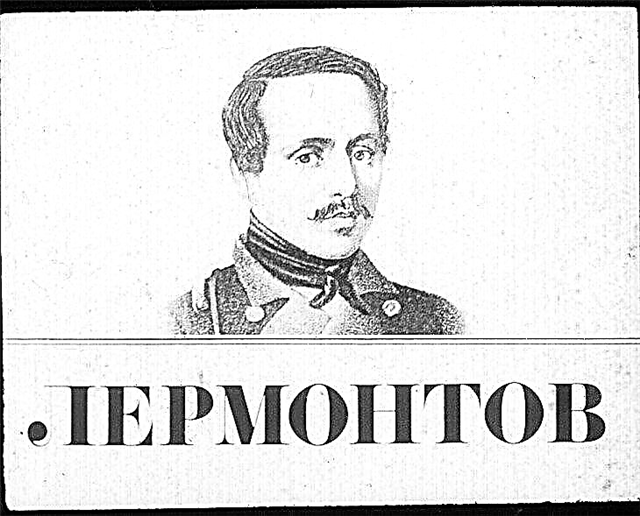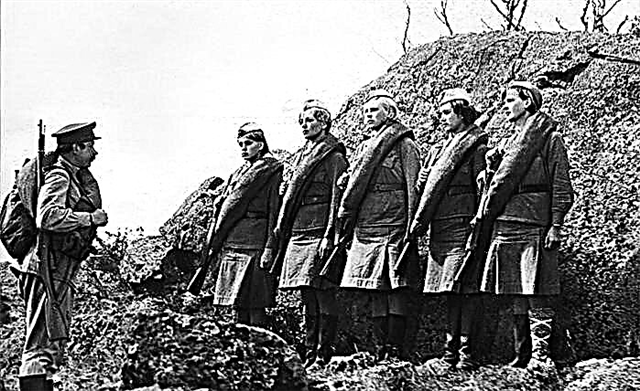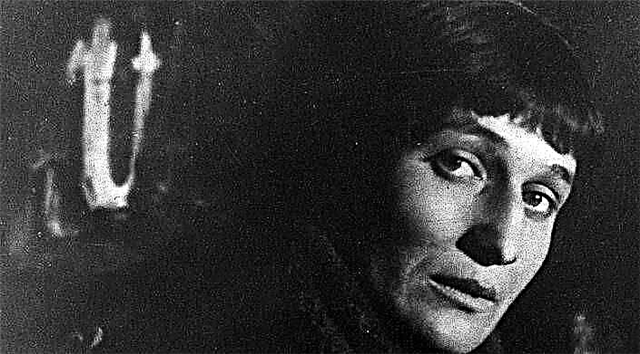: An aristocratic family that is losing its former influence is trying to find meaning in life and cope with its difficulties.
1
Post-war time. The narration is conducted in the first person - the main character of the story of 29-year-old Kazuko.
Kazuko and his mother have breakfast with soup. The daughter notes the mother’s innate aristocracy, manifested even in the way she eats. Kazuko recalls the words of his brother Naoji: "The title does not yet make a man an aristocrat." In their family, the true aristocrat is mother. “There is something in it that we can never achieve.”
During the conversation, they remember Naoji, who was taken into the army from the university, and he was considered missing. Entering the Lyceum, Naoji became obsessed with literature and delivered a lot of trouble to his mother. But Kazuko was sure that they would see him again, because Naoji is a scoundrel, and only beautiful and kind people die early. Kazuko was frightened by the thought of the death of such people, because mother is beautiful.
A couple of days ago, Kazuko and neighboring children found snake eggs in bamboo thickets. Deciding that they were vipers, they decided to burn them. But the eggs did not burn. Kazuko learned from the girl that these were ordinary snake eggs. She buried them under the sink. Mother condemned such an act. In the evening they saw a snake and guessed that it was her eggs. Mother feels awe of snakes, because she and her brother Wada saw a black lace of a snake at the head of her husband on the day of his death. Kazuko remembers that that night, ten years ago, the trees near the pond were entwined with snakes. She felt a disgusting viper settle in her soul.
We moved to Izu from Tokyo Kazuko with his mother in December of the same year, when Japan announced its surrender. Uncle Wada took over the money: selling a house on Nishikatamati and buying a new one. Mother told Kazuko that she was going to Izu because she had her. If the daughter were not there, she would prefer to die. For the first time, Kazuko saw mother crying: she was always kind and affectionate, did not allow cowardice, so the children grew up so pampered and spoiled. The daughter realized what hell existence turns into if there is no money.
In Izu, mother got sick, but recovered after a strong medication from a local doctor.
2
Kazuko accidentally started a fire. She did not extinguish the rotten and at night she found in the bathroom a bunch of brushwood near the firebox, engulfed in flames. The neighbors helped put out the fire. The owner of the hotel O-Saki advised to thank the help with money.
From the next day, Kazuko began to work in the garden. Rubber-soled slippers reminded her of labor duty during the war: she piled up piles a day later. Only once did she guard the boards at the request of the officer. There, the girl was able to sleep and read the brochure. They did not see the officer again.
Kazuko got the feeling that she was turning into a village rude woman by pumping life juices from her mother.
“... if anyone loves summer flowers, he is destined to die in the summer,” mother once said. Kazuko laughed, saying that she loved roses: well, will you have to die four times a year? Mother changed the subject, saying that Naoji was alive. He became addicted to opium (in his youth he dabbled in drugs and earned a huge debt for his family) and after treatment he would come to them. It will be difficult for Uncle Wada to contain three, he offers Kazuko to become a governess. The daughter considered this offensive and began to reproach her mother for her love for Naoji and that she, Kazuko, did not need her. Kazuko realized that she was wrong. In the evening they reconciled.
3
It has been raining lately. Kazuko decided to tie a pale pink wool scarf into a sweater. At school, she did not like to wear it. Now I noticed how this pink hue is in harmony with the gray sky.I appreciated the taste of mother and her sensitivity and patience. Kazuko thought that she and Naoji had plagued such kind mother with their antics.
The village of Naoji's arrival, mother, on the advice of her son, now wore a gauze bandage soaked in livanol - so that her tongue did not hurt. Naoji constantly traveled to Tokyo. In his room, Kazuko found a notebook with the inscription "Diary of the Evening Face" (apparently, recordings of the period of drug use) and began to read. The brother says that he can write excellently, he talks about writing. "... are there moral people?" There is a record of a pharmacist's debt of one thousand yen. It is impossible to sell your things - only a bunch of books for nothing (5 yen). People are indifferent to his suffering. “May you die!” - even this phrase is a pity to hypocritical people for him. “Is suicide really the only way out?”
Kazuko read to the words "My dear sister!" and shut the notebook. She recalls how, because of her brother's addiction to drugs, she sold her jewelry secretly from her husband, Yamaki, to help raise money for Naoji. O-Seki's old nanny passed them on to Naoji through the writer Uehara. One day, Kazuko herself went to Uehara. They drank two glasses of sake in an eatery at the Tokyo Theater. The writer suggested that Naoji is better off addicted to alcohol than drugs. Seeing Kazuko, he kissed her. She had a "secret." Soon, she told her husband that she had a lover. When the child died after giving birth to her husband, Kazuko fell ill, her relationship with Yamaki was broken.
Six years have passed since then. Kazuko realizes that Naoji is hard, he's at a standstill.
4
This part consists of three letters written by Kazuko to the writer Wehara. In the first she writes that mother fell ill. Money earned for clothes, takes Naoji and drinks it in Tokyo. "... if I continue to eke out such an existence, my life itself will begin to decay." “... six years ago, my soul suddenly lit up with a faint pale rainbow. She can’t be called either love or love, but from that day she didn’t leave me for a moment. ” Kazuko writes that he wants to know what the true feelings of this writer, M. Ch. (As she calls him) are. Despite the fact that M. has a wife and children, she wants to become his kept woman. Signature: To Mr. Uehar Jiro (My Chekhov. M. Ch.).
Kazuko writes in a second letter about his craftiness: there are a lot of wealthy old people around her, and she certainly would not want to become a Uehar kept woman. One artist (he was seventy) married her, but was refused. “For a woman like me, marriage is unthinkable if there is no love. I am no longer a child. I will be thirty next year. ” She recalls The Cherry Orchard and turns to Uehara: “... I don’t want you to become Lopakhin at all. I just ask you not to resist harassment from a not very young woman. " "Do not think that I just fell in love with the writer, like Nina from" The Seagull "... I want a child from you." Kazuko asks if Uehara loves her and invites her to visit Izda.
In the third letter, she talks about a conversation with her mother about him: he is an immoral person - it is written on his forehead. Such a person becomes safe.
Kazuko also wants to become immoral. She wants to see Uehara, but cannot go to Tokyo because of her mother’s illness. “They love for no reason ... I'm just waiting for you. I want to see you again. ”
5
“I dropped the letters into the mailbox with the feeling that I was throwing herself from a sheer cliff into the deep sea, but ... there was no answer.” After talking with Naoji, Kazuko found out that nothing had changed in Uehar’s life, she realized that not a single particle of Kazuko had penetrated his life either. Naoji is inspired by the idea of publishing along with other writers.
Kazuko's sail was raised, and she decided to go to Tokyo. But mother got worse. The temperature is thirty-nine. A local doctor diagnosed a cold, followed by infiltration in the right lung. Kazuko wrote to her uncle, a doctor Miyake came from Tokyo with a nurse. Both lungs are affected. Tuberculosis. But the daughter does not leave hope, she decided to improve the nutrition of mother.
Kazuko has a dream: she goes with a young man dressed in Japanese along the path to the lake. The bridge they were about to go through has sunk. A woman recalls her mother, and from a young man hears that she is in the grave. Kazuko wakes up. Mother is alive.
Caring for his mother, Kazuko reads Rosa Luxemburg's Introduction to Economics. The idea of destruction. Thirst for revolution. "Rose is tragically, recklessly in love with Marxism." Kazuko concludes that there is nothing more beautiful than revolution and love, although wise people have always convinced them otherwise.
In October, mother did not feel better. His arm was swollen. Miyake's doctor came again. There is no hope of recovery. Naoji and Kazuko discuss their financial situation. Brother prefers to beg, rather than be dependent on his uncle, Kazuko declares to the dumbfounded Naoji about his intention to become a revolutionary.
Mother dreamed of a snake, and she asked her daughter to see if she was on the steps. Kazuko saw a snake in red stripes, the one whose eggs she had burned. “Get out!” She stamped her foot to drive the snake away, and told her mother that there was nobody.
Kazuko spends all her days with her mother, knitting socks around her. Mother and daughter talk about life. “No matter how many years we have lived in this world, we remain unconscious children and understand absolutely nothing!”
In the evening, Aunt and Uncle Wada, Dr. Miyake, arrived. Mother asked me to make sure that she no longer suffered. The doctor gave an injection. Three hours later, mother passed away. "... there were only two people close to her - Naoji and me." The deceased's face has not changed much: mother remained just as beautiful. The daughter thought, “that she looks like the Virgin Mary in Pieta.”
6
Kazuko intends to fight for her love. It seems to her that the parting words of Jesus Christ to his twelve disciples are addressed to her. "Be wise as serpents, and simple as doves." She believes that chaste and carnal love is essentially the same thing. And she is ready to burn in the fiery hyena for her love.
Uncle took over the costs of the funeral. Naoji dragged himself along with some dancer from Tokyo. Kazuko decided to go to the capital to meet with Uehara. She first searches for him at home, where she meets his wife and daughter, at drinking establishments, but she hears everywhere that he has just left. Finally, Kazuko finds Uehara at Tidori. He became a different person: in the corner of the room sat an old hunched creature resembling a monkey: “unkempt hair, as before, became thinner and acquired some kind of dull reddish tint, the face turned yellow and puffy, the eyelids turned red and swollen, in the mouth that was constantly grumbling, it didn’t missing front teeth. ” She sat for a while with the company drinking him at the same table.
Uehara gives the owner of Tidori an envelope with ten thousand yen. Kazuko notes to herself that with this money she could live a year. How many light bulbs can be bought that are not in the Uehar family, so his wife and daughter go to bed as it gets dark. And yet he understands that he cannot live in a different way.
Uehara escorts her, they talk. “And no one in the world loves me like him,” I realized instantly from his tone. “ Uehara leads her to spend the night in the house of the artist Fukui. Kazuko falls asleep in a room on the second floor. “At some point, I felt that he was lying next to me ... For about an hour I silently and desperately resisted. But suddenly I felt sorry for him, and I gave up. " Kazuko realizes that he is mortally ill. Uehara drinks because he wants to “die” as soon as possible. At dawn, Kazuko looks at his face, it seems to her the most beautiful in the world.
Naoji committed suicide that morning.
7
Naoji's suicide note states that he does not consider death a crime. “A person must have the right to live and the right to die.” He wanted to become his among ordinary people, to become a boor. But he achieved this only forty percent. He was not accepted by the commoners, but he could not return to the aristocrat because of the acquired rudeness.“I needed to experience constant dizziness. Only drugs remained. ”
"All people are the same ... Why can not you say everyone is good in his own way?" Despite the perceived disgust of these words, Naoji writes that he allowed them to intimidate themselves. “I never enjoyed the revelry” was a way of escaping my shadow. “Is it really a crime to be born an aristocrat?” The only thing that stopped him from suicide was his mother's love. “As long as your mother is alive, you must temporarily reserve this right to death. Because when you die, you kill her at the same time. ” He reveals his secret to his sister: he loves the wife of his friend, the artist. Naoji fell in love with this woman when she covered him with a blanket (he slept with them). She did this "out of natural sympathy for human loneliness." "She was a man who knows how to love." Her name is Suga-chan. Whatever Naoji did, he could not forget this woman, so beautiful inwardly.
Naoji is happy about the opportunity to commit suicide: his body will find a fool-dancer, not a sister. He asks to put his mother’s kimono for him in the coffin.
8
After the death of Naoji, Kazuko lives alone in the house for about a month. Then he decides to write another Uehar letter. She's happy. "The Virgin Mary did not suffer from her husband, but, having given birth, she was all radiant with pride and became the Mother of God."
“To give birth to a child from a loved one and raise him - this is my revolution!” Kazuko thanks him for becoming strong. She asks to have his wife at least once take her baby in her arms. Kazuko would have passed him off as a Naoji child from one woman. She cannot explain such a desire. This is a sacrifice for Naoji. Signature:

